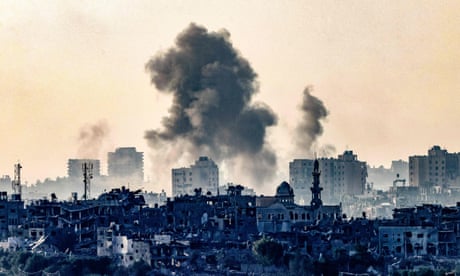For several weeks, the authors have been in conversation about their response to the current crisis and the role of art in political resistance
Sally Rooney: In the middle of November, as the catastrophe in Gaza intensified, I was asked to take part in a public event with the British-Palestinian author Isabella Hammad. We were invited to discuss our work as novelists, and the role of writers and artists generally, in the context of current events. I was unable to travel at the time, but I suggested that we might conduct a conversation over email instead, with the intention of publishing our exchange.
In both her novels and her nonfiction – such as her recent Edward Said memorial lecture, Recognising the Stranger, delivered at Columbia University, New York, in September – Hammad writes about Palestinian life with profound intelligence, insight and subtlety. Her first novel, The Parisian, was based on the story of her great-grandfather, Midhat Kamal, who as a young man returned from France to his hometown, the Palestinian city of Nablus, at the end of the first world war and the start of the British occupation of Palestine. Her second novel, Enter Ghost, is about an Arabic production of Hamlet in the West Bank in the summer of 2017.

